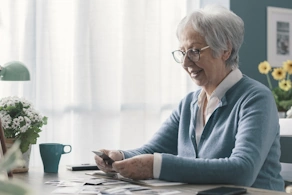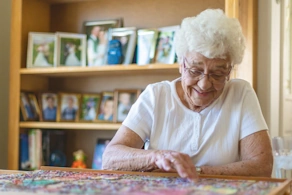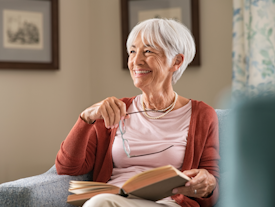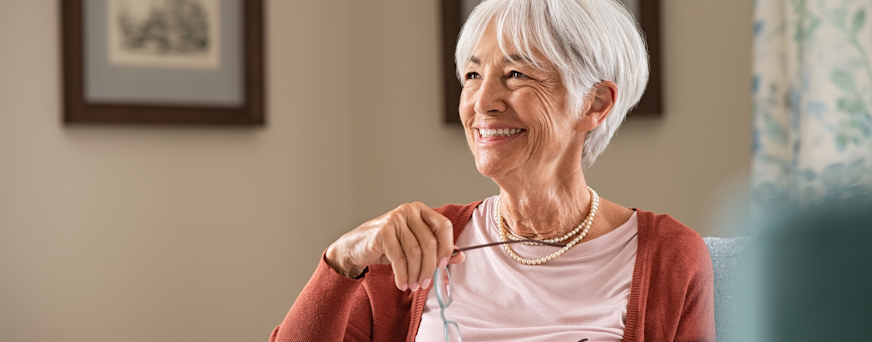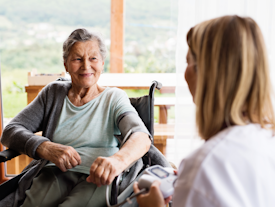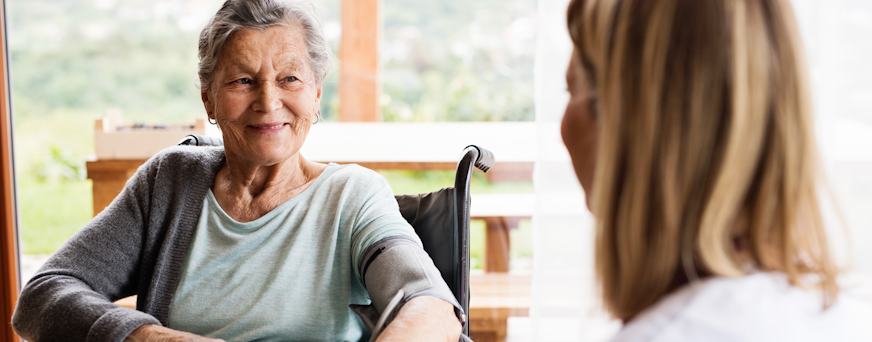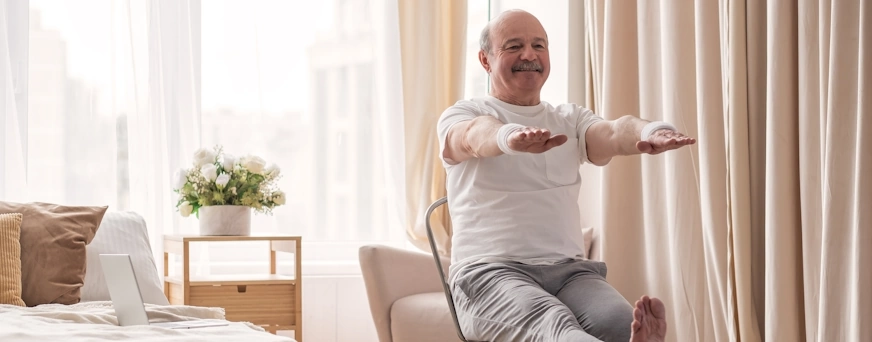Are Colonoscopies Safe? What Seniors Need To Know Before The Procedure
Colonoscopies may not be a fun subject to discuss, but this procedure is a crucial part of maintaining a person's health. This is especially true for seniors, as issues like colorectal cancer are much more dangerous when caught late instead of early. Still, many worry about the safety of this procedure. To help ease any fears, learn all there is to know about colonoscopies, how they're performed, and whether they're safe.
Life Assure Product Quiz
Take our 30 second quiz and discover which Life Assure medical alert device is the right fit for you or a loved ones.
Life Assure Product Quiz
Take our 30 second quiz and discover which Life Assure medical alert device is the right fit for you or a loved ones.
What Are Colonoscopies?
A colonoscopy is a medical procedure for examining the inside of the large intestine, or colon. It spots polyps, tumors, inflammation, or bleeding, which signal colorectal problems. The process uses a colonoscope, a long, flexible tube with a camera, to give doctors a clear view of the colon and rectum.
Patients are usually sedated to ensure comfort during the procedure. The colonoscope is carefully inserted through the rectum and guided through the colon. As the camera sends images to a monitor, the doctor checks for any signs of disease. If needed, they can take a biopsy or remove polyps for further testing.
Colonoscopies are a routine and trusted method for keeping the colon healthy. While it's understandable to be nervous about having something inserted into your body, there's no reason to fear. A colonoscopy is one of your best tools for finding what could be serious medical issues before it's too late for treatment.
Why Colonoscopies Are Crucial For Seniors
Colonoscopies are useful for catching many copy ailments faced by seniors before they can develop. Colorectal cancer is a major one, as it ranks as the second leading cause of cancer deaths in Canada. Regular screenings can dramatically lower the risk by finding and removing precancerous polyps before they turn into cancer. Statistics reveal that early detection through colonoscopies can result in an 85% survival rate over five years if the cancer is caught early.
Due to this and similar statistics, it's generally recommended that seniors start regular colonoscopies at age 50 and continue until 75, unless advised otherwise by their doctor.
Are Colonoscopies Safe For Seniors?
When asking, "Are colonoscopies safe?", put things into perspective. Overall, colonoscopies are safe, with complications being exceedingly rare. The procedure is especially safe when performed by experienced professionals. Risks like bleeding or colon perforation occur in less than 1% of cases, and reactions to sedation are uncommon. Healthcare providers take extensive precautions to keep the procedure safe for seniors. The most you're likely to experience is a bit of soreness for a day or two after.
Common Risks And How They Are Managed
As said, it's very rare for there to be any complications following a colonoscopy. The main risks of colonoscopies include:
- Bleeding: This might happen if a biopsy is taken or a polyp is removed, but it's usually minor and manageable during the procedure.
- Perforation: A rare occurrence where a small tear in the colon wall may require surgery.
- Sedation Reactions: Some patients react to sedatives, but these reactions are typically mild and manageable.
Medical teams are well-prepared to handle these risks, closely monitoring patients during and after the procedure to address any complications quickly.
Preparing For A Colonoscopy
You'll most likely be asked to prepare before your colonoscopy, which means following your doctor's instructions for what to do in the days leading up to the procedure. Most commonly, this means certain changes to your diet. Low-fiber foods like white bread, rice, and skinless produce are a good choice, and avoid anything too fatty. You may also need to eat lighter meals overall.
The day before, you'll be required to fast. No solid foods are allowed; only clear liquids like broth and water. If anything you consume has added coloring, avoid anything with red, blue, or purple due to the risk of discoloring the colon. Additionally, you're not allowed to have alcohol before the procedure.
Laxatives may also be part of your prep to help thoroughly clear the colon before your colonoscopy. For the most part, you can buy these over the counter, but you must have a prescription. You'll also want to tell your doctor about your current medications and any recent procedures, as these may potentially cause complications due to reactions with the anesthesia. Blood thinners may also need to be adjusted to account for the bleeding risk.
What To Expect During The Procedure
A colonoscopy lasts about 30 to 60 minutes, during which time a patient is sedated for the sake of comfort. The doctor inserts the colonoscope through the rectum and guides it through the colon, checking for abnormalities. Wearing loose clothing and arranging for someone to accompany you can make the day a lot easier, especially if you feel groggy after sedation.
Post-Procedure Care And Recovery
After the procedure, patients are monitored until the sedation wears off. It's normal to feel a bit drowsy or disoriented, so having a friend or family member to drive you home is advisable. Follow any specific instructions provided by your healthcare team to ensure a smooth recovery.
In the hours following the procedure, you might experience mild cramping, bloating, or the sensation of needing to pass gas, which should dissipate quickly. Drinking plenty of fluids and eating a light meal, as recommended by your doctor, can help ease these symptoms. It's generally safe to resume normal activities the next day, but avoid heavy lifting or strenuous exercise for at least 24 hours.
Be vigilant for any signs of complications. While rare, symptoms like severe abdominal pain, persistent bleeding, dizziness, or fever should prompt immediate medical attention. Keeping open communication with your healthcare provider is crucial during this time, so don't hesitate to reach out if you have any concerns during your recovery period.
Alternatives To Colonoscopies
While colonoscopies are the gold standard for colorectal screening, alternatives, such as stool tests (FIT or FOBT) and CT colonography, exist. These may suit seniors who can't undergo a traditional colonoscopy due to health reasons. However, they might not detect all issues. Discuss with your healthcare provider which option best fits your health needs.
Conclusion
Colonoscopies are a safe and essential tool for maintaining colon health, especially for Canadian seniors. They offer a proactive way to detect and prevent colorectal cancer and other issues. While there are some risks, they are minimal and well-managed by healthcare professionals. Seniors should feel confident discussing any concerns with their healthcare provider to make informed decisions about their health screenings.



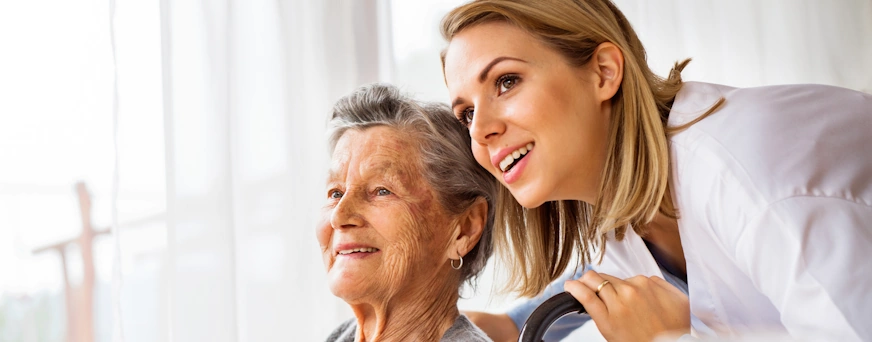







 Get Help With The Push Of A Button
Get Help With The Push Of A Button
